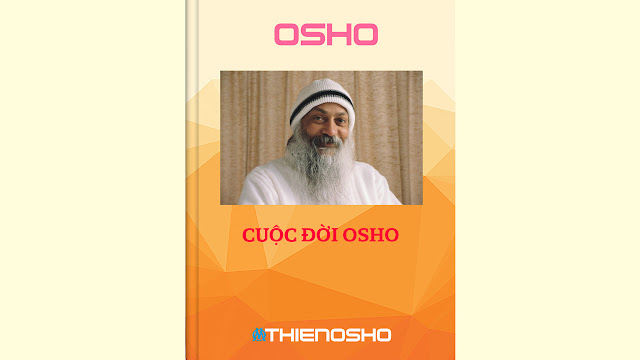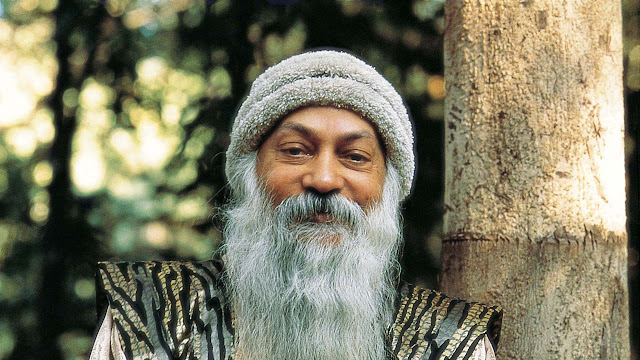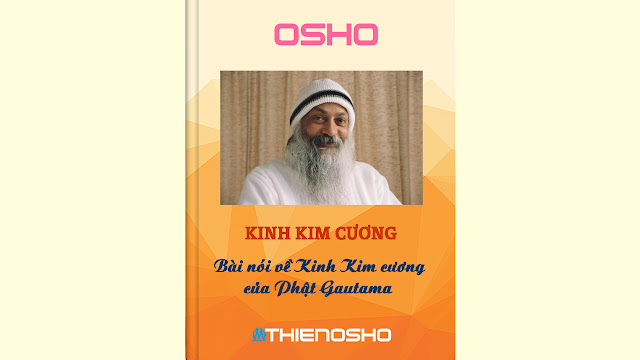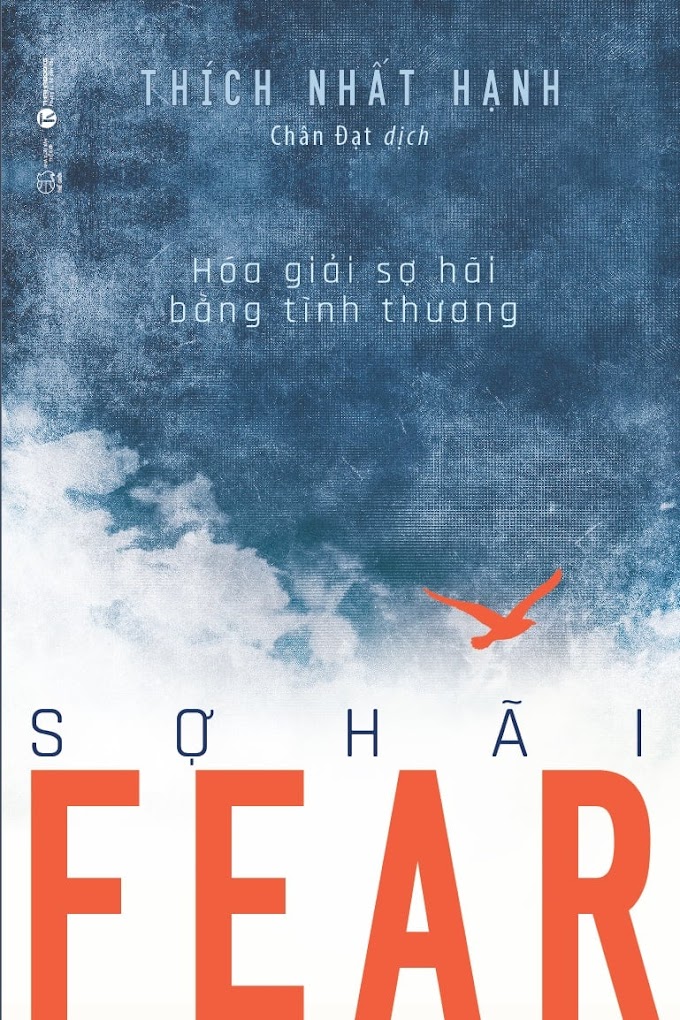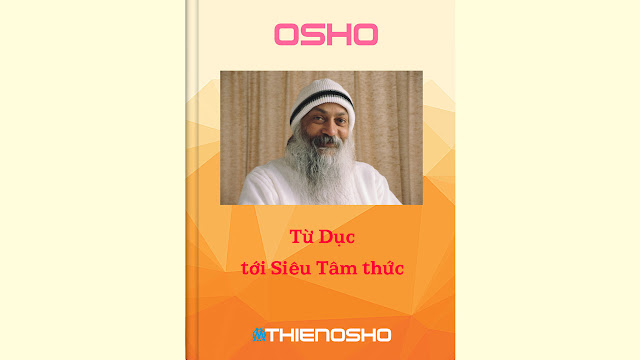Read more
Osho’s parents’
marriage
Hajji Baba of Pakistan, who is
now nearly one hundred and ten years old, was present at my father's marriage
and he had come with the marriage party to my mother's place. It created a
great stir in the whole Jaina community, because it is a tradition that when
the bridegroom comes to the house of the bride they have to be received on the
boundary of the town, and the chief of the family has to be garlanded. A
turban, a very valuable turban, has to be put on his head, beautiful shoes made
of velvet have to be put on his feet and he is given a robe, specially made for
him.
My (paternal) grandfather said,
"Hajji Baba is the chief of our family." Now, a Mohammedan, chief of
the family of a Jaina... my mother's father was at a loss—what to do? Hajji
Baba was saying, "Don't do this." But my grandfather was never able
to listen to anybody. He said, "It doesn't matter. Even if we have to go
back, we will go back, but you are my family's chief I have always been like
your younger brother, and how can I be received when you are here?"
There was no other way; my
mother's father had to receive Hajji Baba as the chief of the family.
In the past there were children
married before they were ten. Sometimes children were even married when they
were still in their mother's womb. Just two friends will decide that, "As
our wives are pregnant, if one gives birth to a boy and the other gives birth
to a girl, then the marriage is settled, promised." The question of asking
the boy and the girl does not arise at all. They are not even born yet. They
are not even certain yet whether both may be girls, both may be boys. But if
one is a boy and another is a girl, the marriage is settled. And people kept
their word, their promises.
My own mother was married when
she was seven years old. And her parents had to tie her to a pillar inside the
house when the marriage party was coming* and there were many fireworks. And at
the reception there was music and dance. And everybody was out of the house,
and my mother reminds me still that, "I could not understand why only I
was left inside the house and tied! They wouldn't let me go out." She had
no understanding what marriage was. She wanted to see, like any child,
everything beautiful that was happening outside—the whole village had gathered,
and she was crying.
My father was not more than ten
years old, and he had no understanding of what was happening. I used to ask
him, "What was the most significant thing that you enjoyed in your
wedding?"
He said, "Riding on the
horse." Naturally, for the first time he was dressed like a king, with a
knife hanging by his side, and he was sitting on the horse, and everybody was
walking around. He enjoyed it tremendously. That was the most important thing
that he enjoyed in his wedding.
A honeymoon was out of the
question. Where will you send a ten-year-old boy and a seven-year-old girl for
a honeymoon? So in India the honeymoon never used to exist, and in the past,
nowhere else in the world either.
And when my father was ten
years old and my mother was seven years old, my father's mother died. After the
marriage, perhaps one or two years afterwards, the whole responsibility fell on
my mother, who was only nine years old. Two small daughters my father's mother had
left, and two small boys. So four children, and the responsibility on a
nine-year-old girl and a twelve-year-old son.
My (paternal) grandfather never
liked to live in the city where he had his shop. He loved the countryside. He
had his own beautiful horse. And when his wife died he was absolutely free. You
will not believe it, but in his time—and it is not long ago—the government used
to give land to people for free. Because there was so much land, and there were
not so many people to cultivate it.
So my grandfather got fifty
acres of land free from the government. And he loved living sixteen miles away
from the city where he had left the whole shop in the hands of his children—my
father and mother—who were only twelve and nine years old. And he enjoyed creating
a garden, creating a farm, and he loved to live there in the open air. He hated
the city.
Now how can you think that
there could be a generation gap? My father never had any experience of the
freedom of young people of today. He never became young in that way. Before he
could have become young, he was already old, taking care of his younger
brothers and sisters and the shop. And by the time he was twenty he had to
arrange marriages for his sisters, marriages and education for his brothers.
I have never called my mother,
"Mother," because before I was born she was taking care of four
children who used to call her Bhabhi. Bhabhi means `brother's wife'. And
because four children were already calling my mother bhabhi, I also started
calling her bhabhi. Even today I call her bhabhi, but she is my mother, not my
brother's wife. And they have tried hard to make me change, but it comes so
natural to me to call her bhabhi. All my brothers and sisters call her mother.
Only I am crazy enough to call her bhabhi. But I learned it from the very
beginning, when four other children…
And then I had a rapport with
my uncles and with my father's sisters, a friendliness. They were a little
older than me, but there was not much distance. I never thought of respect.
They never thought of respect to be received. They loved me, I loved them.
It was a totally different
world just seventy years ago. Generations were overlapping, and there used to
be no youth. Now youth has come into existence and it will be growing bigger,
because as machines are going to take more and more jobs in the factories, in
the offices, what are you going to do with people? They cannot be left doing
nothing, otherwise they will do something absurd, something irrational,
something insane. They will go mad. So you have to extend the period of their
education.
My diabetes is my inheritance.
My great-grandfather had it, my grandfather had it, my father had it, I have
it, all my uncles have it, all my brothers have it. It seems to be something
intrinsic, so it cannot be cured; it can only be kept in control.
*Note: Osho's mother was restrained because
it was the custom that the bridal couple not see each other before the wedding
ceremony.



